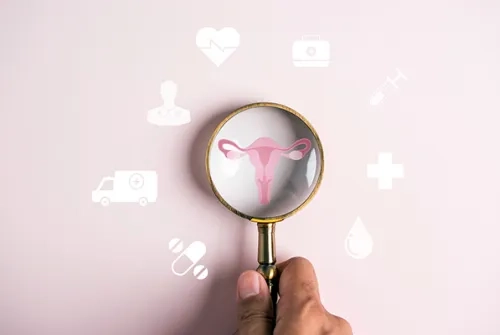Alo Yeditepe
Alo Yeditepe
What is HPV? What are the Symptoms of HPV? How is it Transmitted?
What is HPV Infection?
HPV is the abbreviation of Human Papilloma Virus, which means the virus that causes human papilloma. It is a type of virus that is very common in men and women today, usually does not cause symptoms, has more than 200 types, some of which cause only warts, while others can cause various skin and mucosal cancers, most commonly cervix.
How is HPV Transmitted?
While warts are mostly transmitted around the external genital area, groin and anus through skin-to-skin contact or sexual intercourse, they can rarely be transmitted from the shared use of personal products or from environments where cosmetic devices that come into direct contact with the skin are used. Evidence of transmission from toilets has not yet been shown. It is currently known that 95 percent of HPV types transmitted to the cervix are sexually transmitted. The possibility of it being taken from the mother during birth is a matter of research. Since some types of HPV can cause laryngeal cancer or anus cancer, oral and anal sex are ways of transmission that pose a risk in this sense. If a person is not careful, he/she can spread existing warts to other parts of his/her skin through his/her own hand contact.
Which Types of HPV Turn into Cancer?
When HPV is first infected, it is largely eliminated by the body's immune system, but at a very small rate, especially high-risk HPV types such as 16 and 18, there is a possibility of infection and then initiating cellular changes that lead to cancer. Nutrition, sleep, not smoking and our vitamin levels, especially vitamin D, are very important for our immune system to be strong.
When and Who Should Get the HPV Vaccine?
99% of cervical cancer is caused by HPV, and there is currently a vaccine developed against the 9 types of HPV with the highest risk of causing cancer. It is recommended by the World Health Organization to be given to women and men between the ages of 9 and 26, especially when the immune response to vaccination is best and the probability of encountering HPV is lower. It has been observed that the highest antibody response after vaccination is at the age of 11-12. 2 doses of vaccination are recommended for those under the age of 15, and 3 doses for those aged 15 and over. HPV vaccine administered at an early age has almost 100% protection against these 9 types.
How Many Years After Acquiring HPV Infection Can It Turn into Cancer?
Cervical HPV infection does not cause any symptoms for years in the process leading to cancer; only in cases where cancer develops, breakthrough bleeding may occur after intercourse. It is known that the process from the first infection to the precancerous lesions is at least 5-8 years, and the process until the formation of cancer is 10-15 years. For this reason, early diagnosis, close follow-up and intervention when necessary almost completely eliminate the possibility of cancer.
What Should Be Done for Early Diagnosis of Cervical Cancer?
For women over the age of 21 who have been sexually active for at least 1 year, a smear test, a painless procedure, is performed annually during a vaginal examination for the early detection of cervical cancer. If normal results are obtained three times in a row, smear can be done every 3 years. If the cervix can be checked for HPV infection with an additional swab sample taken at the same time as the smear, this is called "co-test" and if the result comes back as "Smear is normal, HPV was not detected", the earliest smear check can be done after 5 years. In our country, co-test screening is performed every 5 years for women between the ages of 30-65 as a public health screening. The need for these tests will decrease in the future as the HPV vaccine becomes common practice.
This content was prepared by Yeditepe University Hospitals Medical Editorial Board.
”
See Also
- What is Endometrial Cancer? Endometrial Cancer Symptoms and Treatment
- Contraceptive Methods: Birth Control and Effective Protection Options
- What is Vaginal Infection? What are the Symptoms?
- Frequently Asked Questions About HPV Vaccine
- Can Women With Gynecological Cancer Have Children?
- Can Cervical Cancer in Women Be Prevented?
- All You Need to Know About Cervical Cancer
- Be Careful When Consuming Sage During Pregnancy
- HPV Infection Also Affects Men, Not Just Women
- Do Ovarian Cysts Prevent Childbearing?
- No Obstacle to Having Screening Tests in Gynecological Cancers
- Men Should Also Be Vaccinated Against Cervical Cancer
- Urinary Incontinence Causes Depression in Women
- Endometrial Cancer
- Ovarian Cancer
- External Genital Area (Vulva) Cancer
- Can Cervical Cancer Be Prevented in Women?
- Pregnancy Helps Reduce the Risk of Uterine Cancer
Alo Yeditepe





